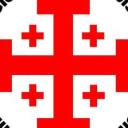Yahoo Answers is shutting down on May 4th, 2021 (Eastern Time) and beginning April 20th, 2021 (Eastern Time) the Yahoo Answers website will be in read-only mode. There will be no changes to other Yahoo properties or services, or your Yahoo account. You can find more information about the Yahoo Answers shutdown and how to download your data on this help page.
Trending News
Are the faults of Catholics attributable to the Church?
I am a Catholic, and I will be the first one to admit that during its 2,000 year history, the Catholic church has had some bad popes and bad people commit crimes in its name. But can these peoples actions be attributable to the church?
Take the Inquisition for example. A group of bad people doing things in the Church's name. Even though it is against Catholic moral doctrine to kill innocent people, some like to attach the actions to the Church. Do the actions of a few who are acting against the Church beliefs but under it's name undermine the Church itself?
I mean, it would be different if it could be justified or misinterpreted by the religion to do these heinous acts, but if it is in direct violation of the teaching of that religion, then those actions cannot be attributed to the religion...
So can the Church be thought of as any less legitimate for acts committed by imperfect humans (aren't we all imperfect?) ?
Christopher - To remedy the disorganized response to heresy, Pope Gregory IX (1227-41) took on the task of bringing the investigation of heresy under the discipline of the Holy See. What we term the “Inquisition” is simply the ecclesiastical tribunal with specially appointed judges (inquisitors) answerable to both the local bishop and the pope, whose task it was to investigate charges of heresy in a systematic and fair way. The origin of this form of judicial inquiry, the inquisitio, was not Church law, but Roman law as incorporated into the procedures of civil and canon law alike. Pope Gregory wisely relied on the new mendicant orders, the Franciscans and the Dominicans, to handle most of the inquisitorial work.
(And it is spelled Vatican... I think someone who knows anything about Catholicism would know how to spell that...)
Joshua - the Church was built on the teachings and doctrine of someone who was fully man and fully God, thus making the religion itself impeccable. The religion is then carried out and administered by men (the first pope being peter). But the imperfection of men does not taint the perfection of the religion's origin.
8 Answers
- imacatholic2Lv 77 years agoFavorite Answer
Modern historians have long known that the popular view of the Inquisition is a myth. The Inquisition was actually an attempt by the Catholic Church to guarantee fair trials and stop unjust executions.
Heresy was a capital offense against the state. It was considered a type of treason. Rulers of the state, whose authority was believed to come from God, had no patience for heretics. Neither did common people, who saw heretics as dangerous outsiders who would bring down divine wrath.
When someone was accused of heresy in the early Middle Ages, they were brought to the local lord for judgment, just as if they had stolen a pig. It was not easy to discern whether the accused was really a heretic. The lord needed some basic theological training, very few did. The sad result is that uncounted thousands across Europe were executed by secular authorities without fair trials or a competent judge of the crime.
The Catholic Church's response to this problem was the Inquisition, an attempt to provide fair trials for accused heretics using laws of evidence and presided over by knowledgeable judges.
From the perspective of secular authorities, heretics were traitors to God and the king and therefore deserved death. From the perspective of the Church, however, heretics were lost sheep who had strayed from the flock. As shepherds, the pope and bishops had a duty to bring them back into the fold, just as the Good Shepherd had commanded them. So, while medieval secular leaders were trying to safeguard their kingdoms, the Church was trying to save souls. The Inquisition provided a means for heretics to escape death and return to the community.
Most people tried for heresy by the Inquisition were either acquitted or had their sentences suspended. Those found guilty of grave error were allowed to confess their sin, do penance, and be restored to the Body of Christ. The underlying assumption of the Inquisition was that, like lost sheep, heretics had simply strayed.
If, however, an inquisitor determined that a particular sheep had purposely left the flock, there was nothing more that could be done. Unrepentant or obstinate heretics were excommunicated and given over to secular authorities with pleas for mercy that were frequently ignored. Despite popular myth, the Inquisition did not burn heretics. It was the secular authorities that held heresy to be a capital offense, not the Church. The simple fact is that the medieval Inquisition saved uncounted thousands of innocent (and even not-so-innocent) people who would otherwise have been roasted by secular lords or mob rule.
The Spanish Inquisition was a civil (not religious) tribunal established in 1480 by Ferdinand II of Aragon and Isabella I of Castile to replace the kinder and gentler Inquisition which was under the control of the Catholic Church.
For more information, see:
+ The Real Inquisition, By Thomas F. Madden, National Review (2004) http://www.nationalreview.com/comment/madden200406...
+ Inquisition by Edward Peters (1988)
+ Religious Dissent in the Middle Ages (1971) edited by Jeffrey B. Russell
+ The Inquisition: A Political and Military Study of Its Establishment (1932) by Hoffman Nickerson
+ Montaillou: The Promised Land of Error (1978) by LeRoy Ladurie
+ Seven Lies About Catholic History (2010) by Diane Moczar
With love in Christ.
- Dave DLv 77 years ago
That depends on how you define "church". In fact the true church is all the Catholics, the Pope, Bishops, priests or just some Catholic guy named Joe. However when you talk about the institution of the Church you are speaking of the hierarchy. You are absolutely right... the group cannot be blamed for the actions of the corrupt. And there was a long period of time when the Church politic lost its way. The leaders had grown obsessed with being earthly kings. The Papal States fought wars to expand their territory. The most magnificent structures and works of art commissioned by the Church were done by some of the most corrupt Popes as a testimony to THEIR greatness rather than God's. The Cardinals of different countries were in fact appointed not by the Pope but the various Kings. The meeting of the Cardinals was more like the United Nations than it was a meeting of holy men and each fought for the advancement of their own country. Personally I thank Garibaldi for ceasing the Papal States and uniting Italy. I think he put the Church back on the right track.
- 7 years ago
"Take the Inquisition for example. A group of bad people doing things in the Church's name. Even though it is against Catholic moral doctrine to kill innocent people, some like to attach the actions to the Church. Do the actions of a few who are acting against the Church beliefs but under it's name undermine the Church itself?"
You do know that they had the full support of the vactican right? I'm sure that if they could they would similar things today.
- Lost ProphecyLv 77 years ago
The Apostles that traveled with Jesus during His public ministry also had faults it's the failings of being man in which as sinners sometimes even though we know it's wrong to do something we still do it for whatever selfish reasons why we do bad things. St. Peter denied he knew Jesus three times in order to perserve his own life, but of course St. Peter being a man had his failings being a sinner. The thing is what St. Peter done afterward was he repented for what he had done and Jesus had forgiven him three times. A canonized Saint are recognized by the Catholic Church for their vertuous deeds which they had done during their life in which people should try to strive to be more like them because these Saints lived by the example of Jesus.
The inquistions were not the fault of any one particular person but rather the fault of many people in which what they believed was the right course of action for the greater good actually had caused many so suffer and even be put to death. Now the irony is that people place the blame soley upon the Catholic Church but what is the the Body of the Catholic Church? Christians and before the Protestant Reformation and English Reformation every person during that time that called themselves a Christian were Catholics.
Think about the prohabition during the 1920's in the United States the population mainly made up of Evangelical Christians wanted to make alcohol illegal believing it to be the drink of the Devil which brought about drunkeness so the Government made laws that prohibited the selling of alcoholic beverages with the exception for religious use. It was at that time the right course of action for the greater good because drunkeness leads to other crimes. But what happend was the mofia (orgainized crime) cornnered the selling and distribution of alchohol beverages and as a result more people were buying alcoholic beverages because people tend to do things which they are prohibited of doing, people don't like to be told what they can or can not do especially in a free nation such as the United States. So the solution actually created more of a problem. It's like the inquistions even though the people that were charged and went to trial for their crimes against the Catholic Church and of society they were made into martyrs this is not so much different besides the cause of the persecution when the Christians were persecuted under the Roman Empire.
As for the Pope's and Magistrium of the Church's infailablity in matters of faith and moral teachings of the Catholic Church the inquistions were outside of theology and rather were under social and criminal law. The reason why the Pope is infailable in matters of the faith and moral teachings of the Catholic Church is because of Divine Revelation in which he is instructed by the Holy Spirit (God) Whom is infailable Himself.
Source(s): Catholic - How do you think about the answers? You can sign in to vote the answer.
- Sola ChristusLv 67 years ago
I agree with the majority of what you are saying here, but your doctrine also asserts that the Pope (Some Popes were corrupt and ordered terrible things) is infallible when speaking in ex cathedra. Where do we draw the line? The Pope and the Church according to your Catechism are inseparable. They go as far as unchurching the vast majority of people who disagree with them.
If you were a Protestant or even Orthodox you would be able to make this argument but as a Catholic you literally believe that the Church is built on a man. Many of which were corrupt by your own admission. These corrupt men can even alter doctrine on a whim when speaking in ex cathedra. That is scary.
- MikeLv 67 years ago
Quite right. Crimes committed by catholics are not crimes of catholicism. But dont be too quick to accept the inquisition the way people usually think of it. It was in fact one of the most progressive courts of its time - and was FAR more lenient than its secular counterparts. Very few executions were ever carried out directly by the inquisition. They were generally always done in conjunction with a secular court or authority. But then, anti-catholic versions of the inquisition simply ignore that point.
- ShinigamiLv 77 years ago
It can be attributed to the society and culture in which people lived.
Back then, Trial by Ordeal was the way to find the truth.
Unfortunately, many people are sinful, so....yeah, it kind of backfired.
Hopefully we all learn from our mistakes, and there hasn't been too many Trial by Ordeals for a while.
It would be awesome to have a Trial by Ordeal for someone who really was guilty of some heinous crime though, right? There is something dark in the human spirit that makes us thirst for blood when something evil happens to us, like say your daughter was raped and killed, and the guys responsible were put through the Trial by Ordeal.
...I guess everything has it's place in history.
- skyLv 47 years ago
This is the world of good and evil.There will be bad fruit at times just as there are good fruits.But because Jesus is at the helm it will never crash.






